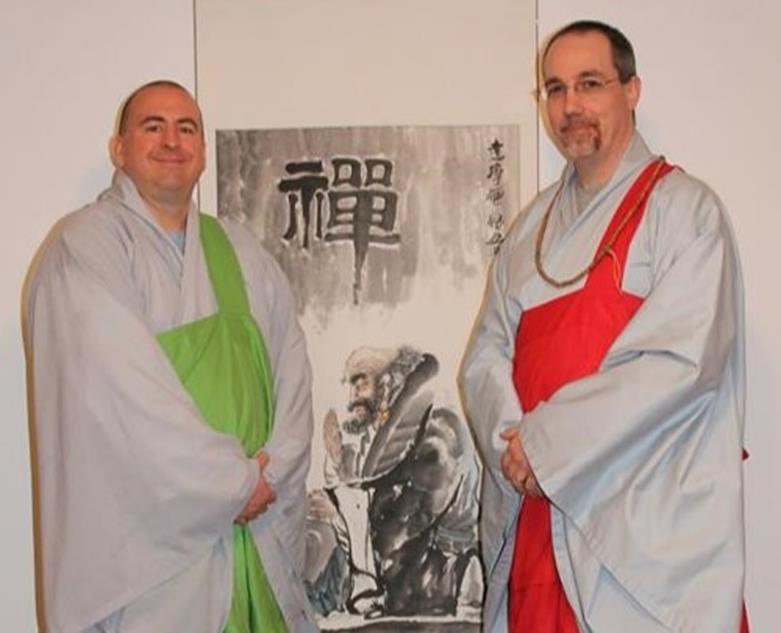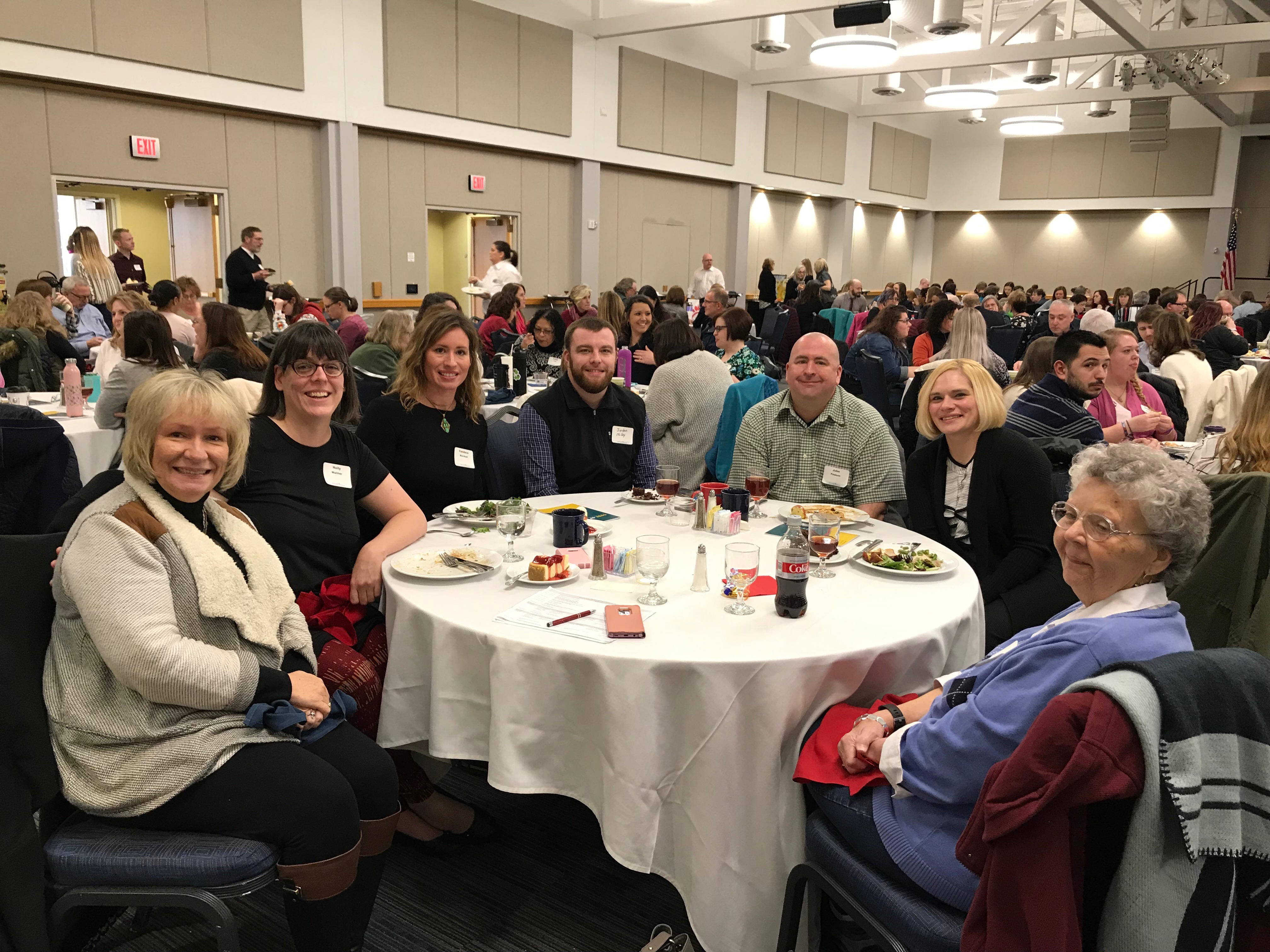 Professional Background
Professional Background
Personal Background
Becoming A Buddhist Priest
I started studying martial arts when I was fifteen. The class I joined at that time, like most martial arts programs, focused on physical movements of self-defense, but it also had an emphasis on meditation and Asian philosophy. It was this class that first exposed me to meditation practice and reading about Taoism and Zen. At first, I thought to myself, “This is stupid. I am not here for this. I want to learn how to punch, kick and throw people around…” But the more I listened to the lectures on the philosophy, the more I read and gave meditation a chance, I discovered its applicability and benefits to my life.
I started studying with martial arts teacher Richard Sears in Indianapolis a few years later. Richard, who at the time ordained in the Tendai Japanese school of Buddhism, created a martial arts system with historical connections to Japan’s Esoteric Buddhism. Training with him led me to start studying Buddhism more specifically and intently. Back in Evansville, I began attending Mindful Heart Buddha Sangha. This local group, founded by Mary MacGregor over twenty years ago, provides an open community for individuals to explore the teachings and practices of the Buddha. I started leading sessions and teaching there in 2009 and have continued to do so since.
After many years, I reconnected with my friend and former teacher Richard, who was now a clinical psychologist writing books about the use of mindfulness meditation in psychotherapy. Since I am also a clinician, we found new common ground around this topic. Richard was now studying in a Zen Buddhist lineage, the Five Mountain Zen Order. The Five Mountain Zen Order (FMZO) or, "The Monastery Beyond Walls," was founded in 2008 by Archbishop Wonji Dharma, D.Dh., who sought to utilize modern technology to bring Buddhism to a wider audience. Richard and I resumed studying together and, in 2014, I received ordination as a novice followed by ordination in 2016 as a priest with the FMZO. One year later, I received the title Dharma Holder, signifying an apprentice teacher who is able to work with students under the supervision of their guiding teacher.
When I became officially affiliated with the FMZO, I received a Dharma name. This name connects you to the tradition, to your teacher, and ultimately to the lineage of Shakyamuni Buddha. My Dharma name is Ryongwan Karuna. Karuna is Sanskrit for “compassion” and Ryongwan is Korean for “correct,” “clear,” or “perfect” “dragon.” One way to read my name is “the dragon of perfect compassion.” Here perfect does not mean “best,” rather being perfectly clear and present in the moment. Obviously, I am not always the best example of this, but I see Dharma names as aspirational, reminders of what we hope to cultivate, develop and express.
 Using Buddhist Teachings in Social Work
Using Buddhist Teachings in Social Work
In psychology, mindfulness is a therapeutic technique in which one focuses their awareness on the present moment, while calmly acknowledging and accepting one's feelings and thoughts without judgement. Reconnecting with my former teacher Richard has been interesting because we talk about traditional practices, like mindfulness, in their historical context and also how they have been and continue to be adapted for today’s behavioral health services.
The use of mindfulness in clinical services is one of my areas of scholarship and practice as a therapist. While these principles and practices have historical origins in Buddhism, we now have a contemporary, secular, scientific context for them. When I use these Buddhist principles and practices in therapy, I rarely (if ever) use actual Buddhist terms or references. For instance, when I facilitate the mindfulness group for inmates participating in the Substance Abuse Program (SAP) at the Hopkins County Jail in Madisonville, Kentucky, I use a language more grounded in contemporary behavioral health and psychological coping skills.
I first started going to the Hopkins County Jail and volunteering in their SAP in August of 2016. Participants in SAP at that time expressed an interest in finding out more about meditation, leading one of their counselors to contact Mindful Heart Buddha Sangha. Given my background in Buddhism and therapy, I was excited to respond. I have been going to sessions about once a week ever since.
Unlike other aspects of the Substance Abuse Program, the mindfulness group is voluntary. I am always amazed by the general response that I receive from the inmates who attend. They consistently express a sincere openness to these practices, and they are grateful for the opportunity.
One of the core aspects of mindfulness is to develop a special type of awareness to our direct experience in the present moment. Our aim in these sessions is to recognize our habitual tendency to pass judgement on and struggle with our experiences and let those negative feelings go. In this way, a core aspect of the practice is gaining perspective on our experiences and expressing compassion for them. To hear the men that have been working with these practices describe themselves in less critical and less judgmental ways and expressing how the practices help them to cope more effectively with inner and outer stress is the biggest payoff for me. I am grateful for the lessons they teach me.
Earlier this year, I was fortunate enough to work with two USI Social Work graduates, Kevin Groves (BSW, MSW and MPA) and Leslie Hagedorn (BSW and MSW), on a chapter in the book Crime, Second Chances, and Human Services: Creating a Pathway to Ordinary Life for the Convicted by Fonkem Achankeng I and Janet Hagen. Our chapter, “The Blooming Lotus” focuses on behavioral health professionals who have themselves benefited from social service programs and their aspirations to give back to others.
Kevin currently works at Southwestern Behavioral Healthcare in Evansville as their Coordinator of Addiction Services. Leslie is the co-founder and current Director of Programming and Services at Evansville’s N.O.W. Counseling Services (where I also work as a Clinical Supervisor). Both of their companies take multiple interns from our Social Work programs each year, providing current students amazing opportunities to get involved in our community. It is a great testament to the interconnectedness of our community, on and off of campus.
Assistant Professor of Social Work, John Paulson teaches in our undergraduate and graduate programs. In 2019, he presented at the 36th Annual Institute For Alcohol And Drug Studies and USI’s 17th Annual Spring Social Work Conference. He also conducted a national webinar for NAADAC (National Association for Alcoholism and Drug Abuse Counselors).
Hear Paulson speak about his work on the podcast “Doin’ the Work: Frontline Stories of Social Change,” hosted by Shimon Cohen.
Paulson is a Licensed Clinical Social Worker (LCSW) and Licensed Clinical Addiction Counselor (LCAC) in Indiana. He is a member of NAADAC, The Association for Addiction Professionals, and recognized by the National Certification Commission for Addiction Professionals as a Master Addiction Counselor (MAC).
He is a member of the National Organization for Human Services (NOHS) and recognized by the Center for Credentialing & Education as a Human Services-Board Certified Practitioner (HS-BCP). He is also a member of the National Association of Social Workers (NASW) and recognized as a member of the Academy of Certified Social Workers (ACSW).